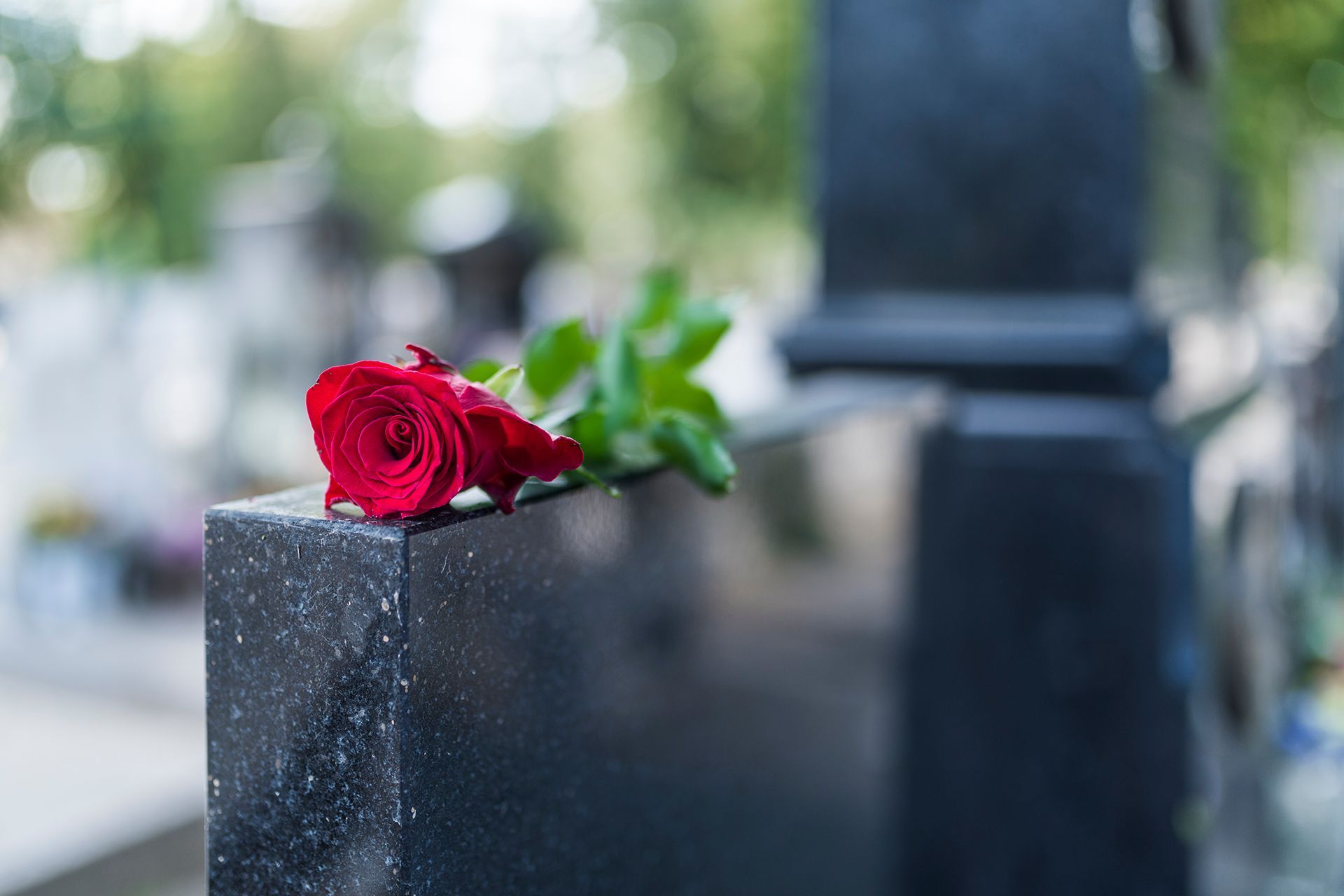When a Loved One Passes
What To Do When a Loved One Passes
The moments following the loss of a loved one can feel overwhelming. There are many decisions to be made, often at a time when emotions are tender and minds are filled with sorrow. You don’t have to face those choices alone.
Our caring staff is here to gently guide you through each step, offering experience, compassion, and support as you make the arrangements that best honor your loved one’s life. Asking for help is not only okay — it’s encouraged. We are here to help make every decision a little easier and to provide comfort throughout the process.
This information is meant to help you and your family understand what comes next and to remind you that we’re here whenever you need us.

Contact The Proper Authorities
Before any arrangements can be made, a medical professional must officially confirm the passing of your loved one.
- If your loved one passes away in a hospital or nursing facility, the staff will take care of this step for you.
- If the passing occurs at home, contact your local emergency services so they can assist and ensure the necessary documentation is completed.
- If your loved one was under hospice care, a hospice nurse can make this declaration at home.
Once this has been done, your family may begin making the next decisions regarding funeral arrangements or other matters. Please remember, you don’t have to handle any of this alone. Our staff is available to guide you through each step with care and understanding.
Begin To Make Arrangement
Once your loved one’s passing has been officially confirmed, you and your family can begin making the necessary arrangements. If your loved one pre-planned their funeral or expressed specific wishes, those plans can be gently reviewed and honored.
If no prior arrangements were made, the next step is to contact the funeral home of your choice. Our caring staff will meet with you to discuss the options available and help you make decisions that reflect your loved one’s life and values. During this time, families often decide whether burial or cremation will take place, and what type of service feels most meaningful. You may also wish to discuss details such as the date and location of the service, choice of casket or urn, pallbearers, music, and any special readings or personal touches that will help celebrate their memory.
If your loved one was a veteran, we can assist you in contacting the Veterans Administration to determine eligibility for military honors or other benefits.
Please remember, you do not have to navigate these decisions alone. Our staff is here to provide guidance, answer questions, and help make this process as gentle as possible.
Information Funeral Directors May Need
When you meet with the funeral director, they will gently guide you through details needed to complete the necessary paperwork, including the death certificate, and move forward with making final arrangements. Have some of the following information ready — it can help make the process a little easier for you and your family:
Basic Information
- Full name and home address
- Date and city of birth
- Marital status
- Name of spouse
- Father’s name and mother’s maiden name
Additional Details
- Occupation and employer
- Highest level of education completed
- Race or ethnicity (as required for the death certificate)
Please know that if you don’t have all of this information right away, that’s okay. Your funeral director will help you gather what’s needed. Our goal is to make this process as simple and stress-free as possible, allowing you to focus on remembering and honoring your loved one.
Documents Funeral Directors May Need
To help complete the necessary paperwork and ensure everything is handled smoothly, your funeral director may ask for a few important documents. Having these items available can make the process a bit easier for your family, but please don’t worry if you don’t have everything right away. We will assist you every step of the way.
Commonly Needed Documents:
- Life insurance policy information
- Beneficiary designations (if applicable)
- Military discharge papers (Form DD-214, if your loved one who passed was a veteran)
- Social Security Number
If any other information or documentation is needed for the death certificate or other arrangements, your funeral director will guide you through exactly what’s required.
Taking Care of Personal Property
In the days following a loved one’s passing, there may be a few practical matters that need attention. Handling these details can feel difficult, so take things one step at a time and ask for help from family or friends if needed.
Start by making sure your loved one’s home and vehicle are secure. If they had a pet, arrange for their care as soon as possible, either with a trusted friend, family member, or local service.
It’s also a good idea to have mail forwarded to a family member or executor of the estate, to help prevent an accumulation at an empty home. If your loved one was employed, you may wish to contact their employer to share the news and address any necessary paperwork.
Lastly, if they had any upcoming appointments or scheduled commitments, you can notify those offices or organizations to cancel them.
While these tasks can seem small, taking care of them helps protect your loved one’s home and personal affairs, and allows you to focus on honoring their memory in the days ahead.

